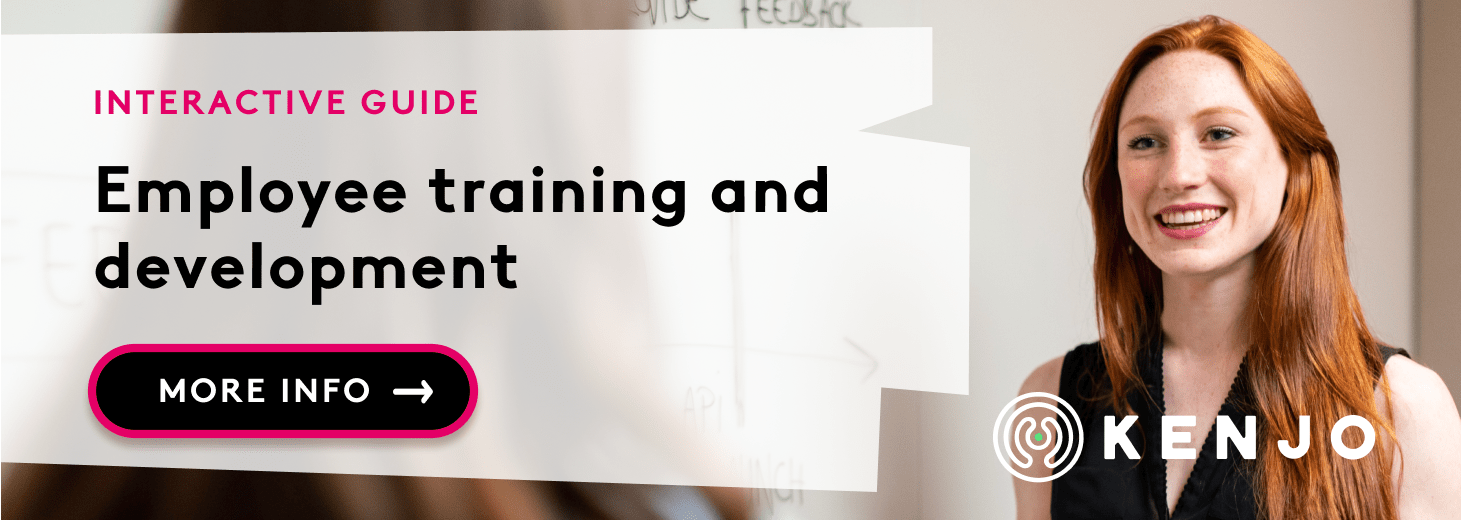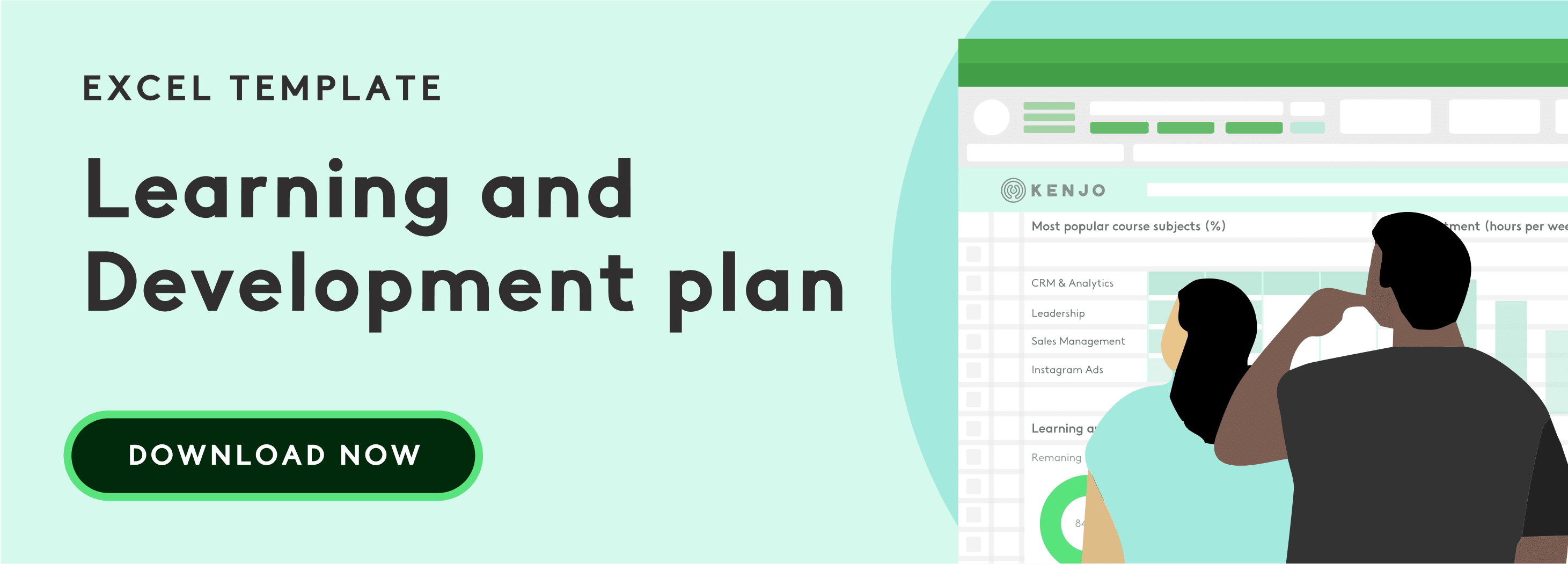The career plan is a valuable tool for employers. By emphasising the development opportunities for each employee, it maximises staff effort and motivation. So, it comes as no surprise that career planning has become popular in recent times, with companies that want to grow with their employees.
What is career planning?
A career plan is usually defined as an individual training project, which aims to provide the necessary tools for each employee to reach their medium- and long-term professional goals.
Wayne Mondy and Robert Noe, who wrote the book “Human Resource Management”, explain that career planning is “an ongoing process whereby an individual sets career goals and identifies the means to achieve them.” They argue that we cannot distinguish between individual careers and organisational needs, as they are one and the same. Companies should help employees with their career planning and development, to satisfy the needs of both.
It’s a case, therefore, of describing the steps a worker needs to take to grow and develop within the company. These should be in line with business needs, as well as the individual’s personal interests. Both parties must be on the same page and work together to create the professional career plan.
The main goals of implementing a career plan
Normally, there is a purpose behind every decision a company makes. In the case of professional career plans, the organisation is probably working towards the following goals:
Attracting and retaining talent
An appealing career development plan can sometimes be enough to attract and retain talent. In fact, according to one study by research company The Harris Poll, a lack of personal growth and development is one of the main reasons why employees leave their jobs. One in every three workers said they left their last job because they didn't gain new skills or improve their performance. This shows just how important career planning is for a company that wants to reduce staff turnover or keep hold of the top professionals in the business.
Create an environment that promotes efficiency and growth
When employees have the tools they need to improve and take on new responsibilities, general business productivity in the company improves. On the one hand, personalised career plans strengthen a worker’s weak spots and help them reach the required level. On the other, developing new skills in line with their interests and ambitions will give them a sense of achievement.
Stabilise the workforce
Another goal of career planning in a company is to create a stable workforce. That means that a large portion of employees develop their professional career within the organisation. They can continue to grow and take on more responsibilities internally, without the company needing to look for external talent to fill leadership roles.
Meeting the organisation’s immediate and future needs
Career planning can also ensure the current set of employees will meet the company’s needs, both now and in the future. If we know, for example, that we will be introducing new systems or machinery, we can train our employees instead of hiring new ones. With good planning, we will always be able to find internal talent capable of meeting the company's needs.

How can technology help you with career planning?
Technology and Human Resources go hand in hand to implement planning infrastructure that allows employees and business leaders to create growth and development programs.
Spot potential leaders
HR software acts as a database, recording each employee’s journey through the company. Thanks to this software, we can easily look up an employee’s records and identify those who are ready to take on new responsibilities and advance internally. Performance review results are a key element.
Discover trends and improvements
The programs available today can generate analytics and reports that give us full control in real time of the department’s main KPIs. This information has immense value for the company, enabling it to identify areas for improvement, spot trends and, of course, make decisions. Detail is everything.
Create action plans
Technology is also helpful for recording an action plan and the relevant goals for each employee. It is important to set specific targets, deadlines, and milestones, to keep results on track. HR software can help with this task and will allow you to organise and store information for each employee in the company.
Finding potential mentors
Technology can also be useful when searching for people to take on mentoring roles, both with new recruits, as well as employees moving to new positions within the company. It’s important that the mentor has sufficient experience and is committed to supporting their colleagues’ professional development.
Motivating employees to design their own future
Technological tools give employees access to the contents of their career plans and remind them which targets they should be striving towards. We need to encourage employees to work towards their goals and take control of their professional career.
How do I build my career plan?
If you decide to create career plans in your company, these are the steps you need to follow:
1. Establish the goals
Career plans should coordinate the employee’s interests with business needs. So, the first step must be to collect this information. Make time to speak to employees individually and find out their professional goals. At the same time, assess the business strategy and medium-term business objectives. Once this is done, compare the results and try to find common ground to work with.
At this stage, it is also interesting to go over employee performance reviews to identify areas for improvement and decide whether it is necessary to work on them.
2. Define the minimum skills for each position
Growing and developing within the company is one of the career plan goals, but to find out whether an employee is ready for the next level, you need to decide if they possess the necessary skills. Defining the required abilities or skills for each post will assist you to build career plans that help employees vie for promotion.
3. Meet with your employees
Meet. Not just once, but a few times. By getting to know your employees, and dedicating time to understand their ambitions, you can develop a career plan together and make it a success. The more effective a program is, the more satisfied and motivated the employee will be, which will also boost their engagement with the company.

4. Combine different training methods
Training will only ever be successful if it manages to motivate and interest the employee. So, it’s a good idea to look for interesting and innovative learning techniques and combine them. For example, coaching sessions, expert conferences, practical workshops, etc.
Gamification, for example, has been shown to be a highly effective method for career planning and development. It involves taking a game, and translating it into a professional context, based on a system of goals and rewards which encourage the employee to reach set objectives.
5. Record the career plan for each employee
Make it clear to the employee what the next steps are in their career plan:
- Goals.
- Steps.
- Training.
- Checkpoints.
It is useful to review goals and results during checkpoint meetings and decide on next steps in order to create a training needs analysis.
If you would like to know how to build a culture of learning at work that’s actually effective, this article is for you!



